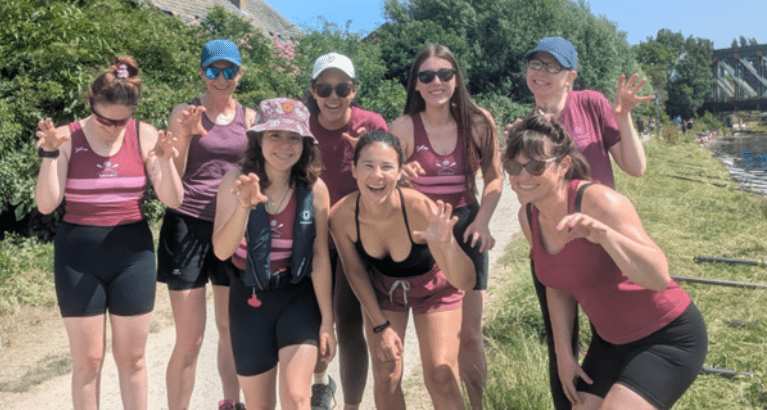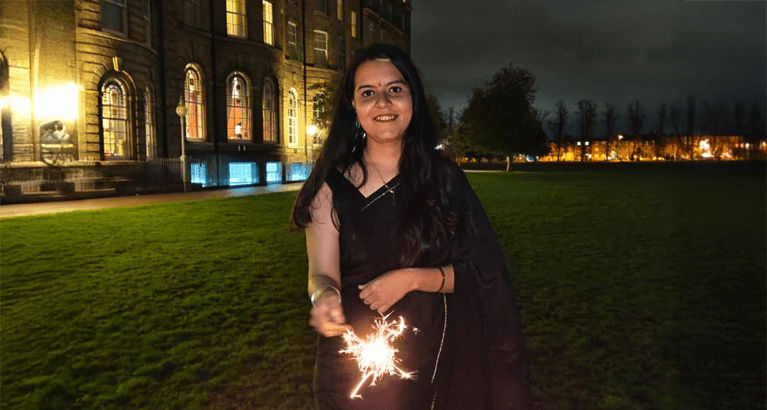Before joining Cambridge, I worked as a quant in portfolio market risk and liquidity risk. I’ve always been drawn to systems, logic and structure but having studied only mathematics and computer science, I wanted to deepen my understanding of financial asset classes. That’s what led me to the Cambridge Master of Finance (MFin) and what I’ve discovered here has far exceeded expectations.
A year of inspiring experiences
Alongside the academic journey, I’ve also taken part in a range of enriching experiences. From serving as an MFin teaching representative, to leading a winning strategy in the Cambridge University Algorithmic Trading Society (CUATS), to trying out new sports and representing Cambridge at the MBA Tournament (MBAT) in Paris. I’ll also be joining the Cambridge Ignite programme this summer to explore a fintech venture.
At the start of the year, I was elected as one of the MFin teaching representatives, which gave me the opportunity to speak regularly with faculty and help relay student feedback to improve the learning experience for future cohorts. It’s been a rewarding way to contribute to the programme and engage more deeply with the academic side of Cambridge.
While the MFin’s quantitative track has strengthened my foundation in financial markets and instruments, I’ve been especially impressed by several of the core courses. For example, the Interest Rate Derivatives and International Finance & FX classes offered both academic depth and real-world context in asset classes I’m genuinely passionate about.
From trying sports to MBAT Gold
I wouldn’t call myself an athlete by nature but I’ve always believed that physical training sharpens the mind and builds resilience. At the start of the year, I signed up for a wide range of club trial sessions, from polo and kendo to rifle shooting, ice hockey and even the Taylor Swift Society.
Over time, I became more serious about a few. I joined the Cambridge University Modern Pentathlon Club (CUMPC), where we trained in laser shooting, swimming, fencing, obstacle running and more. In my leisure time, I kept up tennis and badminton games with classmates. I also rowed regularly with the women’s crew at St Catharine’s College Boat Club and recently just rowed for my College in the traditional boat competition, the May Bumps.
By spring, I was ready for something bigger. This was the MBA Tournament (MBAT) in Paris, which is often dubbed the Olympics of business schools. While MBAT is traditionally an MBA event, Cambridge MFin students are welcome and I was proud to represent Cambridge Judge on an international stage.
In the 3 days, I took part in tennis, badminton, CrossFit, poker and even performed on stage in the Battle of the Bands. Poker was where I found my edge and after 2 days of intense matches, I was thrilled to win the gold medal for Cambridge Judge Business School, clearing the tables of students from top business schools.
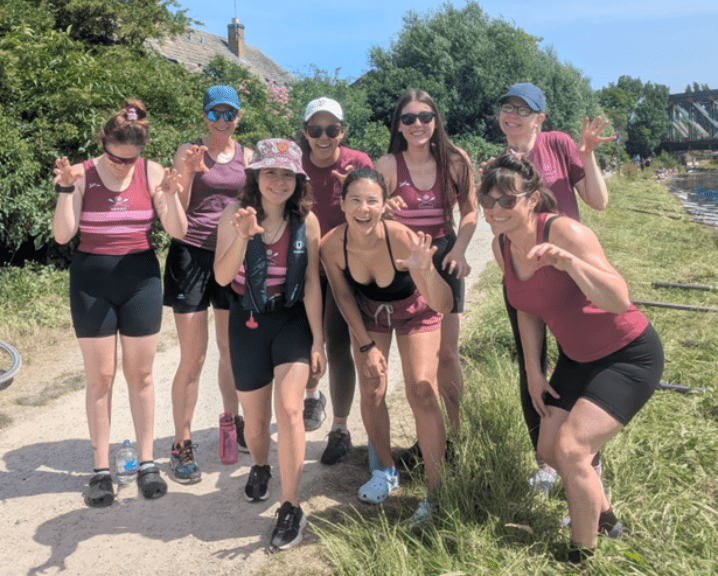
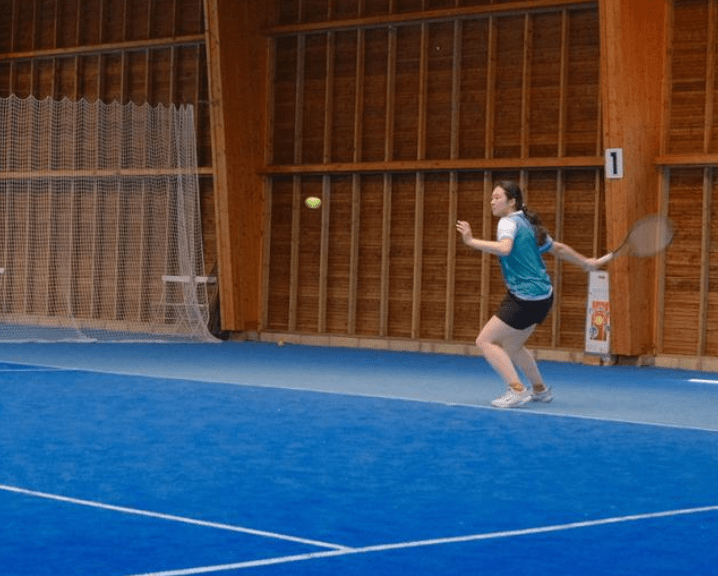
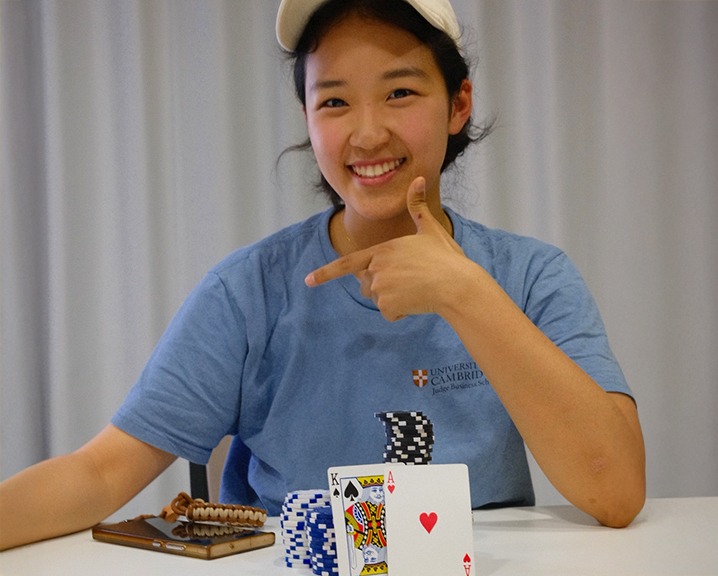
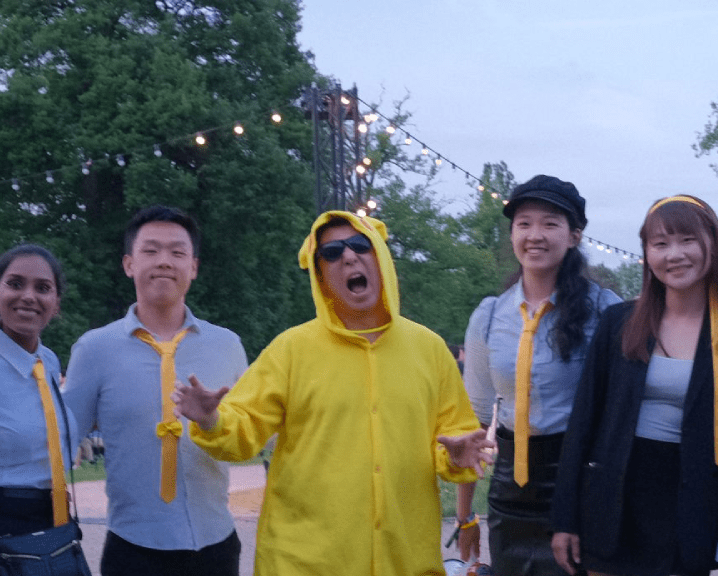
More than a competition, MBAT was a celebration of connection and energy. I made new friends from across Europe and Cambridge Judge Business School MBAs, saw the global reach of Cambridge and experienced first-hand how Cambridge Judge encourages its students to push beyond academic boundaries.
Leading a winning strategy with CUATS and topping the IMC Prosperity leaderboard
I joined CUATS (Cambridge University Algorithmic Trading Society) in the first term, a student-run society open to all Cambridge students interested in algorithmic and quantitative trading. I led a team with 2 other MFin classmates, Ke and Miguel, in the internal trading competition, securing first place, where I developed and implemented a risk-balanced portfolio allocation strategy using mathematical modelling and machine learning. Built on the QuantConnect platform, the strategy achieved a Sharpe ratio of 1.7 over a 7-year backtesting period and performed consistently in live simulation.
Following the CUATS internal competition, I joined the CUATS team led by our president, Farouk, to compete in the IMC Prosperity Trading Competition, one of the world’s most competitive algorithmic trading contests. Over the course of 15 days, we tackled 5 rounds of complex market-making challenges set on a virtual island with fictional products.
As a team, we developed and refined strategies such as butterfly spread construction, execution logic optimisation and orderbook pattern modelling, leveraging statistical structure and market memory to inform our trading decisions. Everyone contributed ideas and models, bringing diverse approaches to solve the dynamic trading puzzles.
We finished 1st in the UK, 4th in Europe and top 25 globally out of more than 12,000 teams. The experience was fast-paced, collaborative and filled with the kind of technical problem-solving I thrive on and it further confirmed my ambition to pursue a career in quantitative finance.
Exploring LLM and AI in finance through GCP and further in law
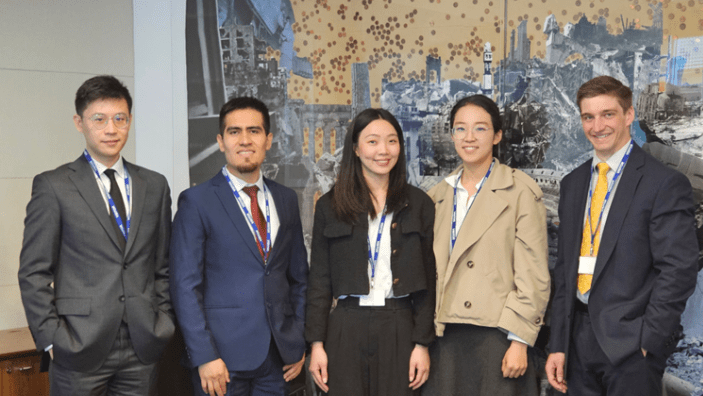
A notable component of the MFin programme is the Group Consulting Project (GCP), which takes place during the Easter term. Drawing from my interest in quantitative finance and AI, I selected a GCP focused on applying large language models (LLMs) to equity research with real world financial filling data. Our team worked with a financial data provider to explore how LLMs can extract and interpret unstructured financial information to support investment analysis and decision-making.
This project aligned closely with my long-standing interest in combining AI with quantitative strategy, a direction I’m now actively pursuing.
I recently took part in the LLMxLaw Hackathon, hosted by King’s ELab and Stanford Codex, where our team leveraged cutting-edge large language models to build a dynamic knowledge graph and automated analysis tools to streamline expert report review and arbitration case workflows.
Looking ahead: Ignite and beyond
In the summer term, I’ll join the Cambridge Ignite programme to begin shaping a fintech venture that blends LLM technology, quantitative trading and behavioural finance. The idea is to build tools that intelligently support long-term well-being and decision-making, through gamification, incentives and adaptive learning.
Like many of the projects I’ve pursued at the University of Cambridge, this one sits at the intersection of finance, technology and human behaviour and I’m excited to carry it forward.
Final reflection
The Cambridge MFin programme has given me everything I hoped for academically and far more beyond the classroom. From building a winning quant strategy and rowing with my College crew, to sprinting between tennis courts and trading simulations, I’ve found growth in places I never expected. Representing the University of Cambridge on international stages and collaborating with peers from across disciplines reminded me that finance is not just about numbers, it’s about creativity, resilience and connection. I leave this year more curious, more confident and more committed to making an impact.
To future students: get involved, take risks and say yes. The real magic often starts where the syllabus ends.

About the blog author
Peiju Li is an MFin student at Cambridge Judge Business School, pursuing the quantitative track. She previously worked as a Quant at Goldman Sachs in Singapore, focusing on liquidity and funding risk. At Cambridge, she served as an MFin teaching representative, led the winning team in the CUATS internal trading competition and represented the University in the IMC Prosperity global quant challenge, finishing 1st in the UK and 4th in Europe. She also won gold in poker at the MBA Tournament (MBAT) in Paris. Outside of finance, Peiju is a self-taught music producer and an avid explorer of new ideas, disciplines and challenges.
Master of Finance
Engage with the world’s best financial minds and skilled professionals. Open doors to exciting new career possibilities with a Cambridge Master of Finance (MFin).


